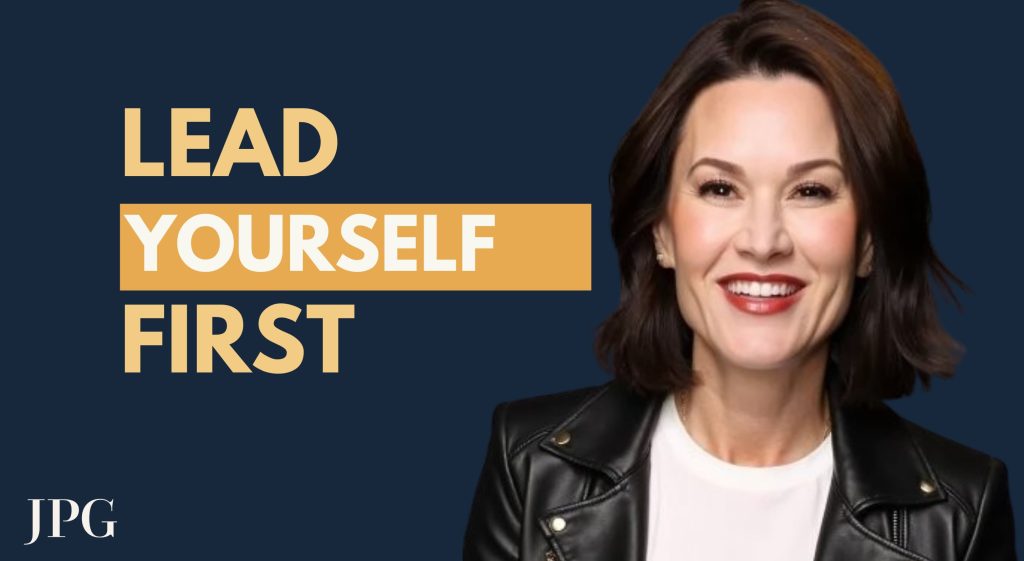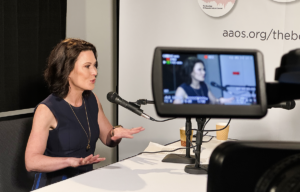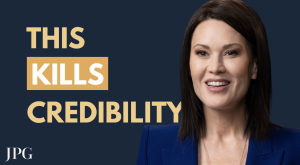The Executive Paradox: Why Leaders Struggle with Self-Care
As an executive coach, I’ve witnessed a troubling pattern among C-suite leaders and senior executives: the very traits that drive exceptional short-term business performance (relentless focus, putting others first, and pushing through challenges) often become barriers to long-term leadership effectiveness and personal well-being.
Research from the Mayo Clinic reveals that 51.3% of executives report high stress levels. Okay, raise your hand if you were studied and didn’t admit to experiencing high stress. I’ve been there. You think, “this isn’t high stress… this is just work. I love my work. I don’t need anything else…” and then you’re in the hospital getting MRIs because you can’t stand up without getting dizzy, and doctors think you had a stroke (and you end up being diagnosed with vertigo).
This isn’t just a personal problem, it’s a business imperative that directly impacts decision-making quality, team performance, and organizational culture.
In other words, listen closely: it’s impacting your leadership.
The Oxygen Mask Principle for Executive Leadership
Every frequent flyer knows the airline safety instruction: “Put your own oxygen mask on first before helping others.” This principle is perhaps nowhere more critical than in executive leadership. I stand on stages all over North America and talk about this. I explain that this isn’t just for mothers. It’s for ALL leaders. Yet most leaders I work with struggle with this concept, viewing self-care as selfish or secondary to their responsibilities.
The reality: When executives neglect their physical health, mental clarity, and emotional well-being, they compromise their ability to lead effectively.
You cannot pour from an empty cup, and attempting to do so inevitably leads to:
- Decreased decision-making quality under chronic stress
- Reduced emotional intelligence and team communication
- Higher risk of executive burnout and costly leadership turnover
- Negative modeling for organizational culture and employee well-being
Data shows that 63% of Fortune 500 boards now formally assess executive health metrics, highlighting how critical executive wellness has become to organizational success.
The Hidden Cost of Executive Neglect
High-achieving executives often operate under the dangerous misconception that self-care is a luxury they can’t afford. The data tells a different story:
- Research shows that companies can see an ROI of up to $6 for every $1 invested in comprehensive wellness programs
- Organizations with leadership wellness initiatives report higher employee engagement and retention rates
- Executives are sleeping up to 25% less and working approximately 25% more than average employees, significantly impacting their performance capacity
When you’re not in the right mindset or not feeling well physically, you’re not just failing yourself, you’re limiting your effectiveness for your team, stakeholders, and organization.
The Executive Presence Connection: How Self-Care Impacts Your Professional Image
Your self-care practices have a direct impact on how others perceive your leadership capabilities.
Physical Vitality as Leadership Currency
- Proper hydration keeps your skin looking healthy and vibrant — crucial when you’re the face of your organization.
- Quality sleep prevents the tired, worn-down appearance that undermines executive presence.
- Balanced nutrition helps maintain steady energy levels, preventing the afternoon crashes that can affect your speaking voice and mental sharpness.
Smart executives know that what you do before high-stakes moments matter.
- Avoid over-caffeinating before important presentations — it creates jittery energy that your audience can sense.
- Get 7+ hours of sleep before board meetings to ensure clear thinking and confident delivery.
- Stay hydrated throughout the day to maintain vocal clarity and prevent dry mouth, a common issue that affects public speaking.
The Compound Effect: When you consistently practice self-care, you develop what I call “executive magnetism” — that hard-to-define quality where people naturally want to follow your lead. It’s not just about what you say; it’s about the energy and presence you bring to every interaction.
Essential Self-Care Strategies for Executive Performance
Executive Stress Management Through Movement
Physical exercise isn’t just about fitness; it’s cognitive performance enhancement.
Regular exercise:
- Improves executive function and strategic thinking
- Reduces cortisol levels that impair decision-making
- Increases energy levels for demanding leadership roles
Even 20 minutes of morning movement can significantly impact your leadership presence throughout the day.
Mindfulness and Mental Clarity for Leaders
Meditation and mindfulness practices aren’t new-age concepts — they’re performance tools used by top executives worldwide.
Regular practice enhances:
- Focus and attention management
- Emotional regulation during high-stakes situations
- Creative problem-solving capabilities
Strategic Relationship Investment
Time with family and trusted friends isn’t separate from your professional success — it’s foundational to it.
Strong personal relationships provide:
- Emotional support during challenging periods
- Perspective and balance that enhances decision-making
- Energy renewal that sustains long-term performance
Implementing Executive Self-Care: A Strategic Approach
Start with Non-Negotiables
Identify 2-3 self-care practices that you commit to regardless of business demands:
- Daily 10-minute meditation or breathing exercises
- Weekly one-on-one time with family members
- Consistent sleep schedule (7+ hours nightly)
Build Systems, Not Just Habits
Create structural support for your well-being:
- Calendar blocking for self-care activities
- Accountability partnerships with other executives or coaches
- Regular executive coaching sessions focused on sustainable performance
Measure What Matters
Track metrics that matter for executive well-being:
- Energy levels throughout the week
- Decision-making quality indicators
- Stress management effectiveness
- Team and family relationship quality
The ROI of Executive Self-Care
Self-care for executives isn’t about work-life balance—it’s about sustainable high performance. When you prioritize your physical health, mental clarity, and emotional well-being, you’re making a strategic investment in:
- Enhanced leadership presence and decision-making capabilities
- Increased resilience during market volatility and organizational challenges
- Better team performance through positive modeling and clear communication
- Long-term career sustainability and personal fulfillment
Your Next Steps: From Insight to Action
- Assess honestly: Where are you currently compromising your well-being for short-term business demands?
- Choose strategically: Select 1-2 self-care practices that align with your leadership goals and schedule
- Implement systematically: Build structural support and accountability for consistent practice
- Evaluate regularly: Track the impact on your leadership effectiveness and adjust accordingly
Remember: Taking care of yourself isn’t selfish, it’s an essential leadership strategy. Your team, organization, and family need you at your best, and that requires putting your own oxygen mask on first.
At Janicek Performance Group, we specialize in training leaders to accelerate growth, command attention, and drive innovation through impactful communication. If you’re ready to transform from expert to influential leader, refine your presence, project confidence, and take control of your message, reach out today to learn how we can help.





